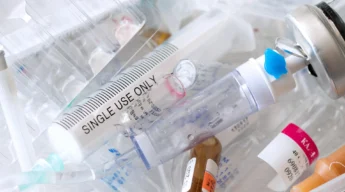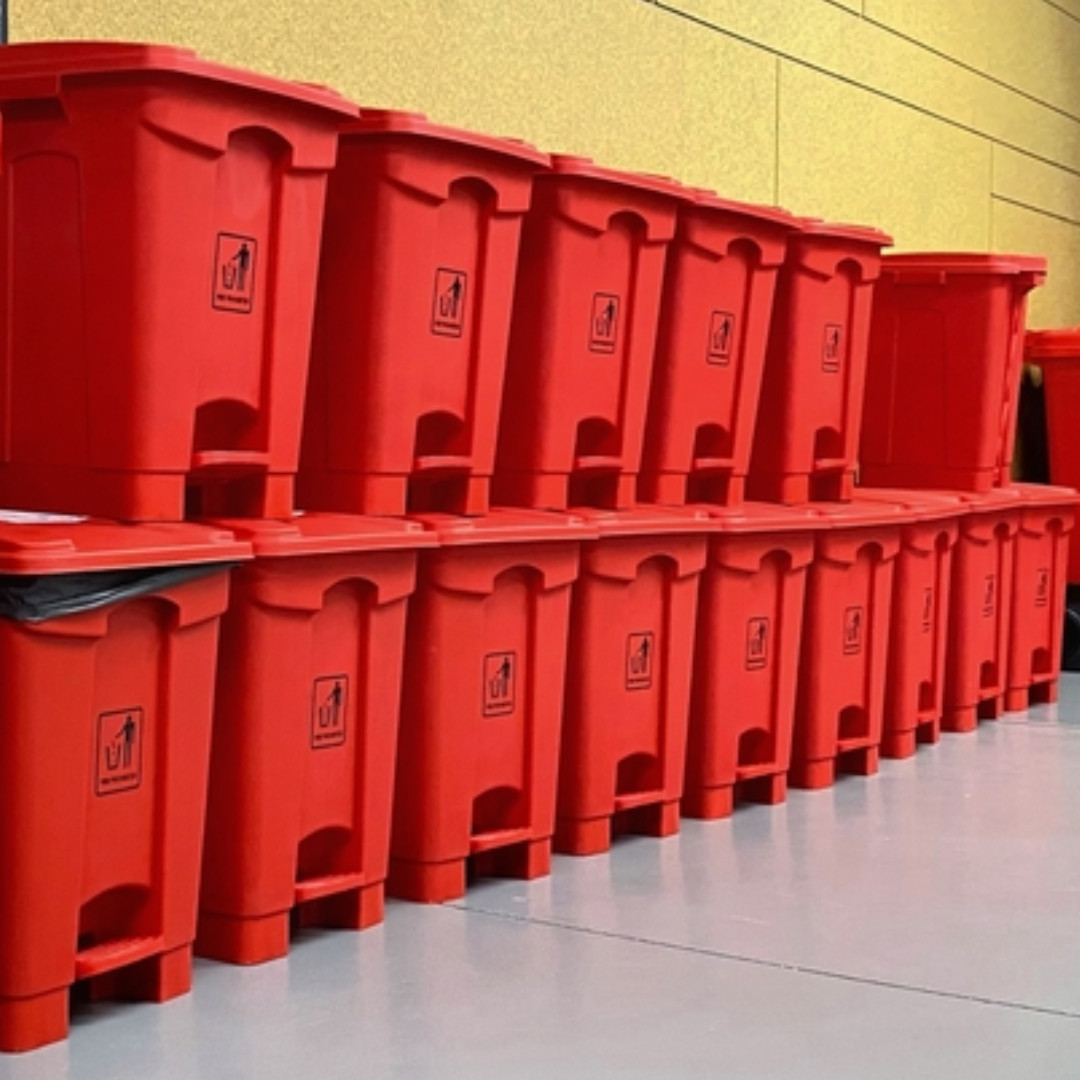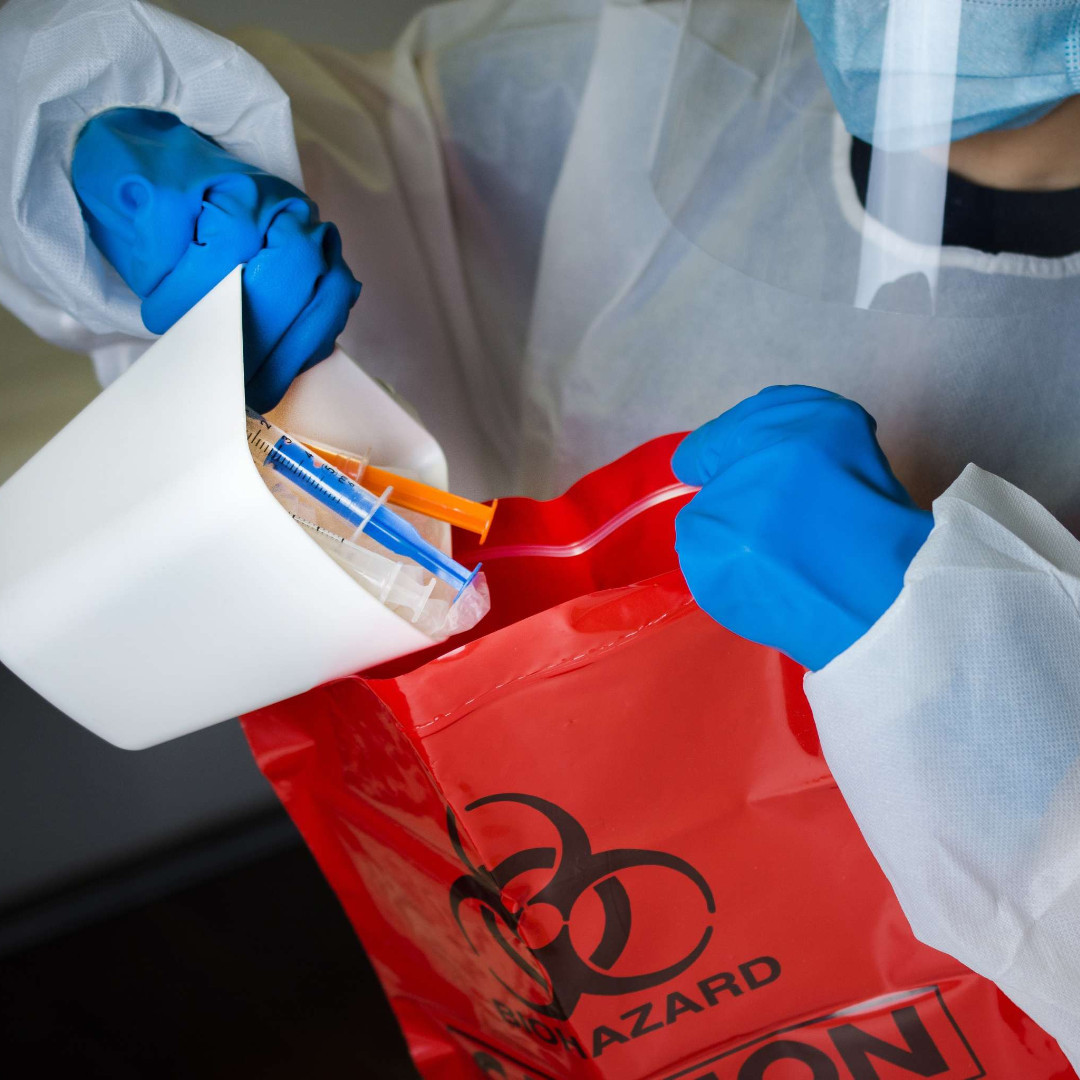Medical waste, is broadly classified as any item that comes into contact with body fluids. The Medical Waste Tracking Act of 1988 defines medical waste as “any solid waste that is generated in the diagnosis, treatment, or immunization of human beings or animals, in research pertaining thereto, or in the production or testing of biologicals. However, each state has unique requirements and definitions of medical waste.
The definition of medical waste includes, but is not limited to: wastes generated by hospitalized patients who are isolated to protect others from communicable diseases; cultures and stocks of infectious agents, including specimen cultures from medical and pathological laboratories, cultures and stocks of infectious agents from research and industrial laboratories, wastes from the production of biologicals, discarded live and attenuated vaccines, and culture dishes and devices used to transfer, inoculate, and mix cultures; human blood and blood products such as serum, plasma, and other blood components; pathological wastes, such as tissues, organs, body parts and body fluids, that are removed during surgery and autopsy; discarded sharps used in patient care or which have come in contact with infectious agents during use in medical, research or industrial laboratories.
Waste Medic provides reliable and cost-effective solutions nation-wide for a variety of medical waste needs… with no long-term contracts.
A Reliable Healthcare Partnership
Our success is built upon strong relationships with our clients. Simply stated… our clients are our number one priority. Headquartered in Nashville, Waste Medic offers our full suite of services to over 2,000 healthcare facilities across Alabama, Georgia, Indiana, Kentucky, Louisiana, Mississippi, North Carolina, South Carolina, and Tennessee.
IN THE NEWS
Celebrating Independence Day with Waste Medic: Honoring Our Nation’s Heritage
Celebrate Independence Day with Waste Medic as we honor our nation’s heritage. Learn about our commitment to community service and our brief office closure on July 4th. Wishing you a safe and joyous 4th of July!
Navigating Change: What Stericycle Clients Need to Know Amid Waste Management’s Acquisition
Discover the implications of Stericycle’s acquisition by Waste Management and why Waste Medic stands out as your local, reliable, and cost-effective provider for medical waste management solutions in the Southeast. Explore our transparent pricing and responsive customer service tailored to meet your facility’s unique needs.
Keck Medicine of USC and USC’s health sciences schools make sustainability a priority
By upcycling ocean plastics, reducing harmful anesthesia gases and transforming medical supply chains, the USC health system and medical research schools hope to curb pollution.














